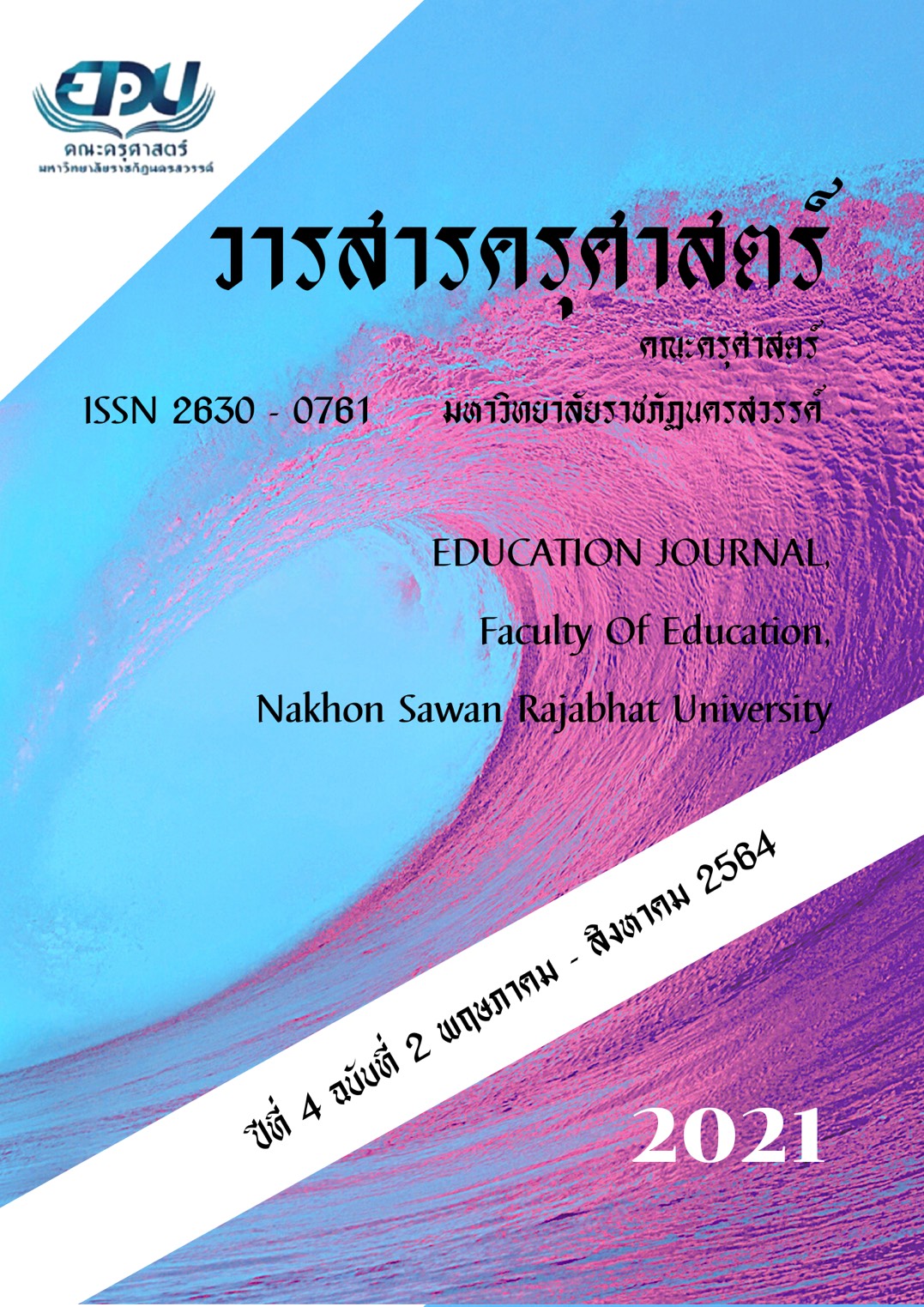Nation Status Discrimination : Language Imperialism in English Teaching
Main Article Content
Abstract
The majority of people in language field may have heard that learning any language will get the best result if learning with native speaker. Despite the financial factor, most English learners see itis worthy to invest because of direct learning with them. To say straightforwardly, the word “Native Speaker” has been making a power, exploiting benefits, and giving a privilege of western people. Learning English language with only native users becomes at best effective method. Those are subtly dominant thought. It is a mythology which marginalizes the value of a person, especially teachers who are not the native speakers. Undeniably, theteaching English in Thailand significantly emphasizing on English following a native identity negatively causes non-native speakers because of not using English like natives. Rather, it becomes a wasted opportunity to develop English knowledge in a way it should be and discriminates effective non-native teachers. Hence, a native language obsession is a failure in the English language teaching-learning process. The main issue used for discussion the failure of teaching-learning English process in Thailand through language imperialism is essentially presented in nation, status, and discrimination.
Downloads
Article Details

This work is licensed under a Creative Commons Attribution-NonCommercial-NoDerivatives 4.0 International License.
References
พงศกร เมธีธรรม. (2560). ภาษาอังกฤษ: มายาคติ อำนาจ และการครอบงำ (พิมพ์ครั้งที่ 1). พิษณุโลก: สำนักพิมพ์ มหาวิทยาลัยนเรศวร.
ไพสิฐ บริบูรณ์. (2554). การสอนภาษาอังกฤษในประเทศไทย : การปรับเปลี่ยนกระบวนทัศน์จากภาษาอังกฤษ
ในฐานะภาษาต่างประเทศสู่ภาษาอังกฤษในฐานะภาษานานาชาติ. วารสารมหาวิทยาลัยราชภัฏสกลนคร,
3(6), 2-11.
ไพสิฐ บริบูรณ์. (2554). ภาษา อุดมการณ์ และการครอบงำ: ปัญหาการสอนภาษาอังกฤษในประเทศไทย
และแนวทางแก้ไข. สงขลานครินทร์ ฉบับสังคมศาตร์และมนุษยศาตร์, 17(6), 23-59.
ศิตา เยี่ยมขันติถาวร. (2557) เปลี่ยนมุมมองใหม่เพื่อพัฒนาภาษาอังกฤษเพื่อการสื่อสาร. วารสารปัญญาภิวัฒน์,
5 (ฉบับพิเศษ), 208-227.
อัจฉราวรรณ บุรีภักดี. (2556). ภาษา อำนาจ หรือ ความเป็นอื่นผ่านเรื่องเล่ารอบรั้วโรงเรียน.
มนุษยศาตร์สังคมศาตร์, 30(2), 203-216.
Baker, W. (2012). English as a Lingua Franca in Thailand: Characterisations and Implications. English in Practice: Working Papers of the Centre for Global Englishes, 1(1), 18-27.
Bennui, P. (2017). Speaking Tinglish for Professional Communication: A Reflection of Thai
English Used by Tour Guides along the Andaman Sea. Silpakorn University Journal of
Social Science, Humanities, and Arts, 17(3), 233-266.
Cain, M. T. (2008). Do you Speak Global? : The Spread of English and the Implications for English
Language Teaching. Canadian Journal for New Scholars in Education, 1(1), 1-11.
Jindapitak, N. (2014). English Pronunciation Teacher Preference: Thai University English Learners’Views. International Technology, Education and Development Conference (4982-4991). Valencia. Spain. Retrieved from ftp://fs.libarts.psu.ac.th/research/sar/ผลงาน ตีพิมพ์%20proceedings/ภาษา/2-English%20pronunciation%20teacher%20preference.pdf
Kirkpatrick, A. (2010). English as a Lingua Franca in Asean (a multilingual model). Kindle
version. Retrieve from http:// www. amazon.com
Kongkerd, W. (2556). Teaching English in the Era of English Used as a Lingua Franca in Thailand.
วารสารนักบริหาร, 33(4), 3-12.
Mahboob, A., & Golden, R., (2013). Looking for Native Speakers of English: Discrimination in
English Language Teaching Job Advertisements. Voices in Asia Journal, 1(1), 72-81.
Mollin, S. (2006). Englsih as a Lingua Franca: A New Variety in the New Expanding Circle?. Nordic Journal of English Studies, (5), 41-57.
Prakaianurat, P., & Kangkun, P. (2018). Language Attitudes of Thai Working Adults toward Native and Non-Native English Varieties. Journal of Humanities Regular, 21(2), 92-111.
Rohmah, Z. (2005). English as a Global Language: Its historical past and its future.
Journal Bahasa & Seni 33 (1), 106-117.
Ruecker, T., & Ives, L. (2014). White Native Speakers Needed: The Rhetorical Construction of Privilege in Online teacher Recruitment Spaces. Race, Identity, and English Language Teaching - A Joint TESOL Quarterly and TESOL Journal, 49(4), 733-756.
Samaranayake, W., S. (2015). Influence of English as a Powerful instrument of Communication
in Thailand. International Journal of English and Education, 4(4), 93-106.
Subandowo, D. (2017). The Language Interference in English Speaking Skill for EFL Learners.
Advances in Social Science, Education and Humanities Research, 110, 204-208.
Suksiripakonchai, W., (2015). English as Lingua Franca and its Status in Thailand: Implications
for Teaching English Pronunciation. Journal of Asian Critical Education, 3, 5-11.
Suwanarak, K. (2010). Can Only Native English Speaking Teachers Teach Aural and
Oral Skills?. ABAC Journal, 30(2), 43-63.
Todd, W., R. (2006). The Myth of the Native Speaker as a Model of English Proficiency.
KMUTT Journal of Language Education, 8, (1-7).
Wannachotphawate, W. (2015). English Language Development Policy: Foreign Teacher,
Hegemony, and Inequality of Education in Thailand. Retrieve February 2, 2021,
form https://eric.ed.gov/?id=ED556354


